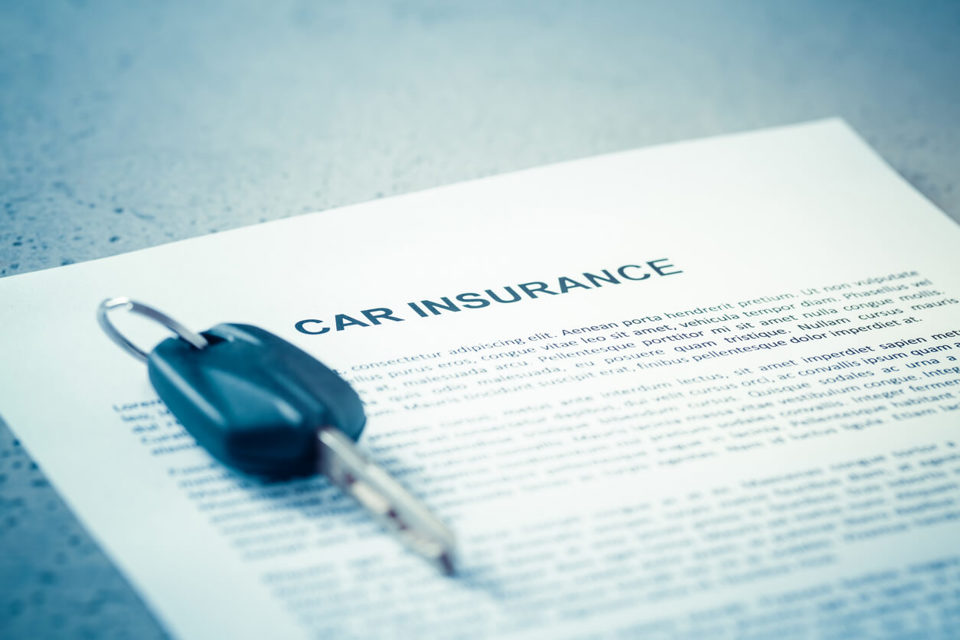The insurance industry has hit back at claims that fleets are being unfairly hit with high premiums for electric vehicles (EVs).
The Association of Fleet Professionals (AFP) has called on the insurance industry to better understand the fleet risk around EVs and has said some firms have been hiking up premiums based on “incorrect and irrelevant” information.
There is also a fear that the rising cost of insurance for EVs is holding back adoption beyond its current 16% new car market share, which appears to be at a plateau.
The Association of British Insurers (ABI) told Fleet News that the insurance market “remains competitive with cover for EVs available from a wide range of providers”.
“Whether to offer insurance, and at what price, is a commercial decision for individual insurers based on their risk appetite,” explained an ABI spokesperson.
“When looking for fleet motor insurance, we would recommend using an insurance broker to find a policy that meets your needs.”
However, the ABI said insurers are having to manage the rising claims cost.
Driven up by increasing costs of repair, materials, labour and second-hand cars - as well as “very expensive claims for personal injury from serious incidents”, the ABI said insurers paid out £2.5 billion to claimants over the last year.
The ABI’s data shows that for every £1 collected in premiums, the motor insurance industry currently pays out £1.10p.
It also said insurance prices are based on risk and claims for EVs are 25.5% more expensive compared with their internal combustion engine equivalents. EVs are also taking 14% longer to repair which is impacting premiums.
Data from insurance firm QBE compares average repair costs and days off the road between 2021 and 2023.
It saw EVs record a 50% premium in repair costs over that time compared with their internal combustion engine (ICE) counterparts and a 10% increase in days off road.
When looking at Tesla in isolation, there was a 93% increase in repair costs compared with ICE and a 25% increase in time off road.
The AFP said that because of the level of Tesla volume in the UK EV market, some insurers are basing information highly weighted on experience with the American EV specialist and applying this across the board to all EVs, even to vans.
"The lack of accurate data and risk profiling is a challenge for many insurers, which can lead to inflated, conservative prices or not insuring EVs altogether," Steven Kirwan, LeasePlan Insurance
Greater collaboration needed
Lorna McAtear, National Grid head of fleet and deputy chair of the AFP, is urging for greater collaboration between insurers and the fleet industry to grasp the issues that are frustrating its members.
She said: “A lot of our members continue to feed back to us that they’re having issues with insuring EVs and it’s becoming more of a problem.
“I think there’s still a lack of understanding from the insurance industry. We’re working on getting key stakeholders from the industry together at a round table soon so we can help educate and drill into the details of why this continues to be a big problem for fleets.
“Our advice would be to argue your case and provide your own risk assessment and as much data as you can.
“Open a dialogue with your insurer and get conversations going about the risk of your fleet.”

Paul Gilshan, Tusker CEO, has included insurance as part of its salary sacrifice offering for EVs for more than 10 years. Tusker shares its own data with insurers to help inform premiums.
He explained: “There is a weight of evidence to suggest EV drivers tend to be more mindful than drivers of ICE vehicles, which could translate into a lower risk profile, depending on the vehicle and driver in question, and Tusker has never had an issue achieving cover for drivers of any vehicle type”
Aviva, which currently insures one in nine EVs on UK roads, explained that the latest new cars, including EVs, have sophisticated technology and safety systems that require specialist knowledge or equipment to repair.
“Repair times can be longer to reflect this,” said a spokesperson for the insurance firm. “This is on top of increased claims inflation, supply chain issues and repair costs which are impacting car insurance premiums, and EVs are no exception.”
In response to the insurance industry using “incorrect and irrelevant” information to inform premiums, the Aviva spokesperson added: “We have over 100 years’ experience in handling motor claims and this expertise is still relevant today, regardless of how a vehicle is powered.”
Ashley Rubinstein, AXA’s senior technical commercial motor underwriter, explained that in the fleet space, pricing models for smaller fleets focus on geography and make/model, while larger fleets are generally rated on their claims experience, which has a much bigger impact on pricing.
He said: “When looking at premiums, some EVs are extremely high value and powerful vehicles. This puts them towards the top of rating scales, just like their combustion engine equivalents.
“Also, continuous advances in vehicle technology have a knock-on effect on vehicle repair costs – a damaged bumper is no longer just a claim for bent metal/plastic, for example.
“However, as more EVs come onto the market, we would expect the cost of repairs to reduce as the supply of parts and the rise in the number of trained mechanics increases.”
Better understanding the price risk
ALD Automotive LeasePlan (soon to be rebranded as Ayvens in 2024) is launching its own insurance service in the UK next year specifically because of the challenges it has faced working with insurers to serve their EV-driving customers cost-effectively.
Steven Kirwan, director of operations at LeasePlan Insurance, said: “The lack of accurate data and risk profiling is a challenge for many insurers, which can lead to inflated, conservative prices or not insuring EVs altogether.
“Leveraging our knowledge from ensuring EVs in mature markets across Europe, we will bring extensive experience to better understand and price the risks associated with EVs.”
Kirwan said the main contributing factor for the higher premium price of EV insurance is actually driven by the higher cost of the vehicle in the first place.
He explained: “Our observation is that it's not necessarily about whether the vehicle is electric.
“Instead, it's linked to the value of the car. EVs tend to be higher value; therefore, they are more expensive to insure, just like high-value combustion vehicles, such as Porsche or BMW.
“People often forget that many EVs are as valuable as these traditional cars, significantly contributing to insurance costs.”
Kirwan believes another factor is the age profile of drivers. Like traditional cars, insuring a powerful or fast vehicle for individuals under 25 can be challenging, but this is not specific to EVs.
He explained: “Vehicles are typically rated based on value, power, acceleration, repair costs, and other factors.
“Historically, new drivers will opt for slower, less powerful cars for lower insurance rates. The value and power significantly influence EV pricing, and hence insurers tend to have these vehicles in higher insurance rating groups.”
Lack of EV repair skills

The ABI has been calling for more investment in training and reskilling automotive technicians to help develop a repair network that can cope with an increasingly electrified fleet.
According to the Institute of the Motor Industry (IMI), 39,000 UK mechanics are now EV-qualified.
Even though this figure has been steadily increasing, the IMI estimates there could be a shortage of around 16,000 EV-qualified mechanics by 2032. The ABI says this deficit may further impact the cost of repair and cost of insurance.
The more data the better
Jon Dye, director of underwriting, motor for QBE European operations, believes that there are multiple factors at play in the price point of EV premiums. These include the higher cost of the vehicles in the first play, as well as how fit for purpose public charging infrastructure is.
He said: “As insurers we are always challenged with looking at new technologies around EV and advanced driver assistance systems (ADAS). We need to predict and project repair costs.
“With EVs specifically, this market is moving and evolving so rapidly.”
Dye says that the UK has one of the most sophisticated insurance industries in the UK and as a whole, it has invested “millions” into researching and learning about these new technologies to inform decision making.
However, he echoed the advice from the AFP to share as much data with insurers as possible. “As an underwriter, the more data and experience from their fleet a client can provide the better,” he explained.
“If we can get information on previous history, the present and what they’re doing in their business to better manage risk, we can use that information.
“The more data we have, the more it can help us to understand and be as specific and accurate as possible.”
When will EV insurance premiums come down?

Dye says motor insurance premiums are high across the board, but there are multiple reasons why he does not predict them falling for EVs, at least in the short term.
“Batteries cost roughly two thirds of the cost of the entire vehicle,” he said. “If you have a damaged battery, that’s essentially your car written off.
“The repair sector itself is lacking the skills and the capacity to fix these EVs. Repairing an EV is more complex and requires specialist skills, particularly if you’re working directly on the battery.”
Kirwan argues that as the EV market develops, it is seeing a reduction in vehicle values and repair costs, which both positively influence the cost of insuring EVs.
He said: “In the future, telematics data from EVs could also be leveraged to personalise insurance rates based on driving behaviour.
“While data privacy concerns exist, if drivers are willing to share their data, it could revolutionise how insurance is personalised and priced. The existing technology in EVs provides a wealth of data that, if accessible, could significantly impact insurance premiums.”
EV fire risk
Fleets have also shared some concerns that the risk of EV fires may also be negatively influencing insurance firms.
However, Dye doesn’t believe this is the case, saying that QBE has not seen the evidence to suggest EV fires are an increasing problem.
He said: “I think the thing with EV fires is they can go up so quick and they’re so intense and that gets media attention. But I don’t think the industry overall thinks EV fires are problematic.”
Global research from EV FireSafe found that 0.0012% of electric passenger vehicles caught fire from 2010 to 2023.
While it was difficult to find similar global statistics for petrol and diesel vehicles, EV Firesafe used a range of country reports and found a much higher 0.1% risk of catching fire, more than 80 times the rate EV Firesafe found for EVs.
Kirwan said the media is responsible for exaggerating rare occurrences of EV fires. He said LeasePlan’s experience with insuring EVs over the last several years has shown very few incidents.
Likewise, Gilshan said the reports of EV fire risks are both “overblown and inaccurate”.
Tusker's own experience of putting “thousands of EVs on the roads for the past 10 years” shows that fires involving EVs “almost never happen”.
He added: “Industry evidence suggests EVs are safer in the event of a collision, and thanks to the high levels of technology and driver assistance found in EVs, they are potentially less likely to have a collision in the first place.”
Read more from Paul Hollick, chair of the AFP, on why EV premiums need to be kept under control by clicking here.





















Login to comment
Comments
No comments have been made yet.